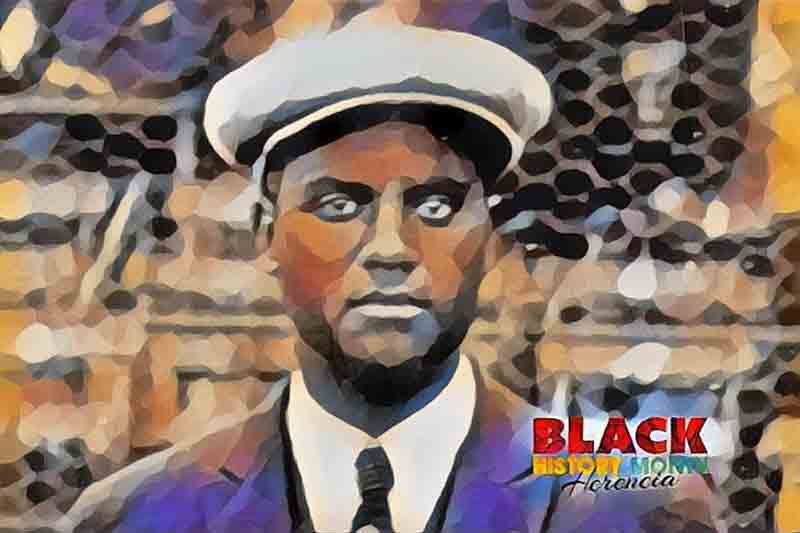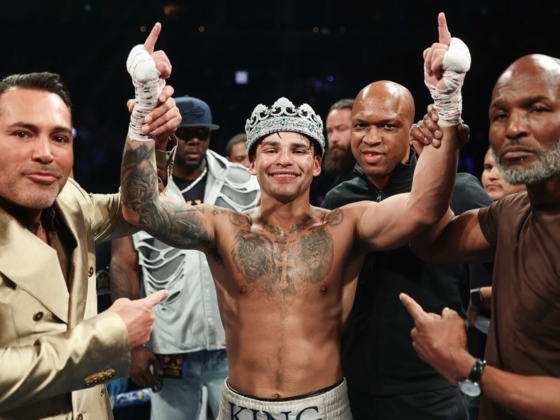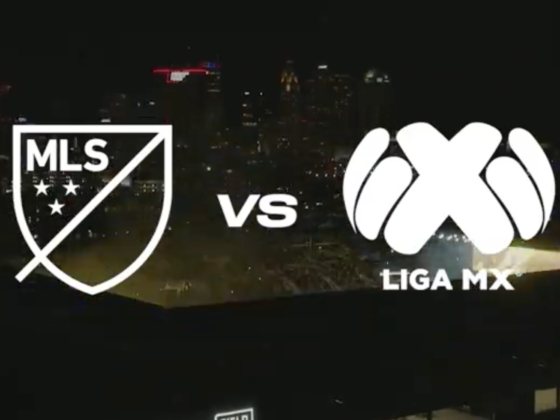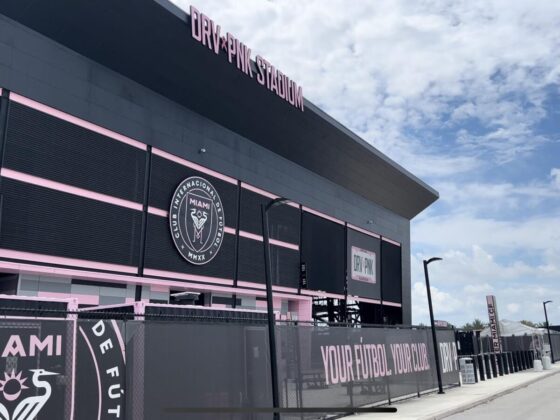This article was originally published in February 2022 as part of a project to celebrate the legacy and valuable contribution of Afro-Latino athletes for Black History Month. Today, we repost it following the same purpose.
Hall of Famer Alejandro “Alex” Pompez’s baseball achievements and his early life as a numbers king in Harlem have thrown doubts on many of his contributions to baseball and his importance to the sport.
A closer look at his life and what he brought to baseball prove his dissenters wrong, as Pompez laid the blueprint to what international scouting is all about and how he was key to desegregating the game. Through his association as a Negro League owner, many African American players broke the racial barrier.
With his travels on tours to the Dominican Republic and Puerto Rico, he opened the door for Latino talents. To many of these players, he was the key to adapting to the United States as he spoke the language and knew firsthand of all the issues and difficulties adapting to a new life away from their homeland.
Born in the late 19th century, he was a cigar producer who later ran a numbers operation in New York and befriended well known mobsters and was the owner of the Cuban Stars and New York Cubans, both teams in the United States Negro Leagues, and then finally as the scout who discovered talents such as Orlando Cepeda, Martin Dihigo, Monte Irvin, Juan Marichal, Willie Mays, and Willie McCovey, all Hall of Famers, while working in the Giants organization, first in New York and later in San Francisco.
“People just don’t know how much he did for us”, said Cepeda to Adrián Burgos Jr. in an interview for his book “Cuban Star”. “How hard it was then and all he did to make sure we had a chance.”
In his book, Burgos Jr. describes Alejandro Pompez as a “trailblazer who over the span of seven decades — from his Negro League days through his major league scouting work — opened pathways for talents from once-insignificant territories.”
“His life story embodied both the dream and the promise of America’s game with a twist. He was an Afro-Cuban-American who rose to reign as Harlem number king and then remade himself strictly as a baseball entrepreneur and talent evaluator of the highest order,” adds Burgos in the preface of his book.
The story of the member of the Hall of Fame dates back to the end of the 19th century, when his father, Cuban revolutionary González Pompez, fled to Florida after the Ten Years War and opened a cigar factory in Tampa. Born in 1890, Pompez would return to Cuba with his mother Loretta several years after the sudden death of his father in 1896.
In the Caribbean island he falls in love with the sport, where in his own words he was “infected with the atmosphere of baseball that permeated the Republic.”
His association with the Giants dates back to the 1940s, when he owned the New York Cubans in the Negro Leagues. Without a stadium to play at home, Alejandro Pompez approached New York Giants owner Horace Stoneham to allow him to play at the Polo Grounds, which Stoneham also owned, after World War II depleted Major League Baseball of big-name players and attendance began to drop.
That relationship grew stronger when Pompez started advising Stoneham on which Negro and Caribbean League players the Giants should sign. The arrival of Jackie Robinson, Larry Doby, Don Newcombe and others to the Major Leagues begins to mark the beginning of the end of the Negro Leagues, forcing Pompez to sell talents like Orestes “Minnie” Miñoso and José Santiago to the Cleveland Indians.
A deal with Stoneham makes the Cubans an unofficial minor league team for the Giants and he is able to lower the Polo Grounds rent. During a tour in the Southern states, where they would face other Negro League teams, Pompez has his first glimpse of Mays, perhaps the most recognized name Pompez signed for the Giants.
In 1951, after practically hiding him from baseball writers and other scouts, Mays joins the Giants, which already had in their ranks the likes of Monty Irvin and Hank Thompson. Alejandro Pompez disbanded the Cubans that year and expanded his full-time relationship with the Giants.
From then on, Pompez would make annual trips to Latin America where he would sign Cepeda and Marichal and be an integral part of bringing Willie McCovey to the Giants.
Later, Stoneham appoints him as the first director of International Scouting and Pompez brings Mateo Alou, José Antonio Pagán and Manny Mota, among others, to the Majors.
His relationship with the Giants begins to sour after the team traded many of the stars he discovered and signed.
“He was quite a man”, said Moises Alou in an interview with the San Jose Mercury News in 2006. “He helped a lot of Latin players make the transition to America. I know he helped me.”
His most important recognition, which in fact lands him in the Hall of Fame, is with the Negro Leagues. He began his relationship with the league shortly after his return to the mainland in the early 20th century, where he began working in Tampa and would start his career as the owner of the Cuban Stars and the New York Cubans, at the same time he was starting his days as a numbers man and his association with notorious mobsters.
Alejandro Pompez and his early days in baseball
In 1910 he moved to New York and started running numbers with his brothers, focusing on the Hispanic and African American population of Harlem.
Baseball definitely touched his life in 1916 when he organized a team of Cuban and Caribbean players to go on a tour which included games in Cuba, the Dominican Republic and Puerto Rico. He had the first big experience as an owner, however, before the start of the tour, when businessman Abel Linares, who sponsored a team with the same name, demanded that Pompez’s tour be cancelled. Pompez challenges him to a game where the winner would keep the team’s name. His stars defeated Linares group by a score of 3-2.
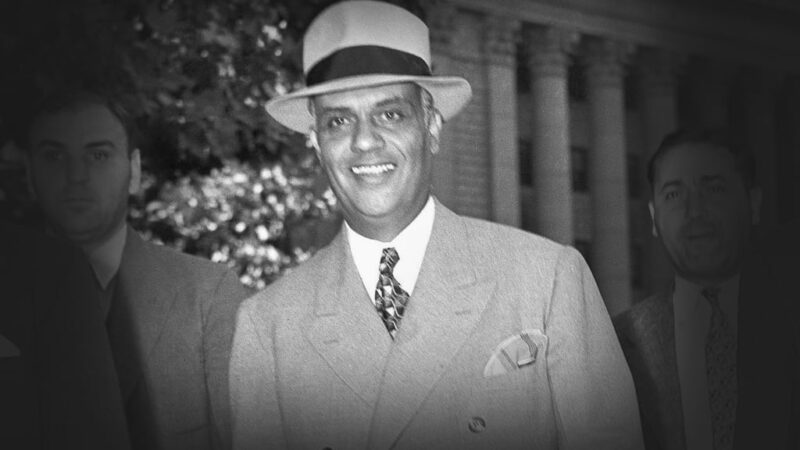
In 1917 he opened a tobacco shop in Manhattan, where he integrated his illegal numbers scheme and broadened his clientele to not only Hispanics and blacks, but to other nationals, entertainment and political figures.
Considered one of the founders of the Negro Leagues along with Nat Strong, Pompez had legal issues over the next 20 years, being indicted on tax evasion and corruption while organizing the New York Cubans, one of the main teams of the Negro Leagues in the United States.
Pompez, though, wasn’t the only Negro Leagues owner to have business interests outside the law. Gus Greenlee, who also ran a gambling business in Pittsburgh, owned the Crawford team. Often times, running numbers and gambling operations were among the ways that Negro League owners could continue to finance their teams.
During this time, Pompez signed Dihigo and Alejandro Oms, both Cubans and prominent figures in the Negro Leagues in that era, and in 1935 he signed Luis Tiant, father of the pitcher of the same name who would star for the Cleveland Indians and Boston Red Sox in the 1970s. and 1980.
His association with people of dubious reputations led him to be indicted by Manhattan’s Southern District Attorney Thomas Dewey along with 69 others linked to illegal gambling. Alejandro Pompez fled to Mexico, where he was subsequently arrested at Dewey’s request. The DA would later run for president against Harry Truman, losing the 1948 electoral race but not before falsely being declared winner by press across the country inspiring what is perhaps the most famous newspaper headline of all time – “Dewey Defeats Truman”.
Pompez was also associated with mobsters such as the notorious Arthur ‘Dutch’ Schulz, who violently took over his numbers game, as well as George and Bo Weinberg, Abe “Killer” Landau and others
Pompez passed away in 1974, three years after being elected to the Negro League Players Hall of Fame by the Negro League committee.
Curiously, he was inducted into the National Baseball Hall of Fame in 2006 for his contributions to the Negro Leagues, and not for being the phenomenally successful talent scout he was for the Giants who single handedly discovered five Hall of Famers.

